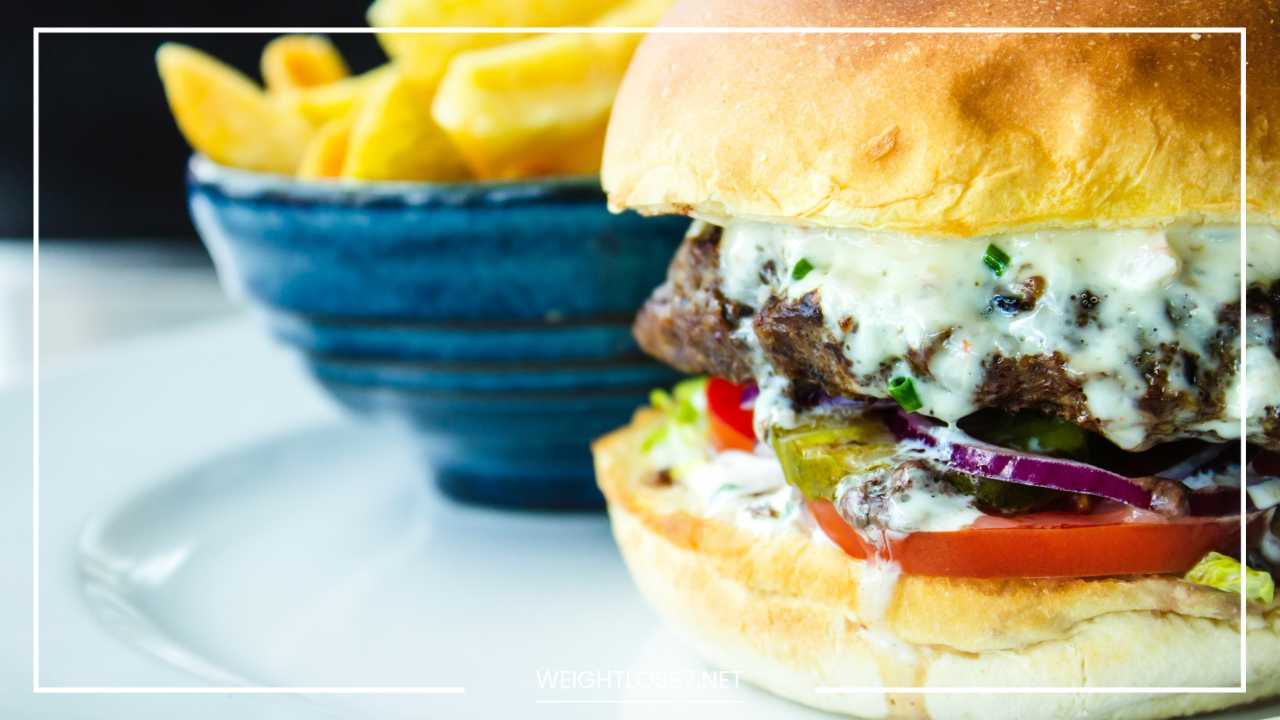How to Reduce Fat From Your Diet

Reduce Fat Intake
How to Reduce Fat From Your Diet: A Guide for Sustainable Weight Management
Fat. It’s a word often demonized in diet culture, but the truth is, fat plays a vital role in our health. It keeps us feeling full, supports hormone production, and protects our organs.
However, excessive fat intake, particularly unhealthy fats, can contribute to weight gain and chronic health problems.
This blog post isn’t about eliminating fat entirely; it’s about making smarter choices to reduce unhealthy fats and incorporate healthy ones into your diet.
We’ll explore different types of fats, provide tips for reducing fat intake, and offer delicious recipes that promote sustainable weight management.
Understanding Different Types of Fat
There are three main categories of dietary fat:
- Saturated Fat: Found in animal products like meat, poultry, and full-fat dairy. Excessive saturated fat intake is linked to increased LDL (“bad”) cholesterol and heart disease risk.
- Unsaturated Fat: Divided into monounsaturated and polyunsaturated fats. These fats are considered “healthy” and can help lower LDL cholesterol and improve heart health. Sources include olive oil, avocados, nuts, and fatty fish.
- Trans Fat: The unhealthiest type of fat. It’s formed through processing vegetable oils and is found in fried foods, packaged snacks, and some margarines. Trans fat raises LDL cholesterol and lowers HDL (“good”) cholesterol, significantly increasing heart disease risk.
Simple Strategies to Reduce Unhealthy Fats
Here are practical tips to incorporate into your daily routine:
- Read Food Labels: Pay attention to the “fat facts” panel. Look for foods lower in saturated and trans fats and higher in monounsaturated and polyunsaturated fats.
- Trim the Fat: Before cooking, remove visible fat from meat and poultry. This simple step significantly reduces saturated fat content.
- Healthy Cooking Methods: Choose baking, grilling, poaching, or steaming instead of frying. These methods minimize added fat and preserve nutrients.
- Mindful Meat Consumption: Opt for leaner cuts of meat like chicken breast, fish, and turkey. Limit processed meats like sausages and hot dogs, which are high in saturated fat.
- Dairy Done Right: Choose low-fat or fat-free dairy products like milk, yogurt, and cheese. Opt for plant-based alternatives like almond or soy milk if you’re lactose intolerant.
- Oil Optimization: Use healthy fats like olive oil or avocado oil sparingly. A drizzle is enough for most cooking needs. Avoid processed vegetable oils high in trans fat.
- Snack Smart: Ditch the chips and cookies. Choose nuts, seeds, fruits, or yogurt for healthy and satisfying snacks that are lower in unhealthy fats.
Embrace the Power of Fiber
Fiber is your friend when it comes to weight management. It keeps you feeling full for longer, reducing cravings and helping you consume fewer calories overall. Focus on incorporating high-fiber foods like:
- Fruits and Vegetables: Aim for a rainbow of colors on your plate. Fruits and vegetables are naturally low in fat and packed with fiber.
- Whole Grains: Choose whole-wheat bread, brown rice, quinoa, and oats over refined grains like white bread and pasta.
- Beans and Legumes: They’re a fantastic source of protein and fiber, making them a perfect addition to soups, salads, and stews.
Delicious Recipes to Reduce Fat
Eating healthy doesn’t have to be bland. Here are some delicious recipes that are lower in unhealthy fats:
-
Mediterranean Salmon with Roasted Vegetables: This dish is packed with flavor and healthy fats from salmon and olive oil. Pair it with roasted vegetables like broccoli, peppers, and onions for a complete and satisfying meal.
-
Turkey Chili with Black Beans: This hearty chili is full of protein and fiber from turkey and black beans. Use lean ground turkey and reduce the amount of cheese to lower the fat content.
-
Lentil Soup with Whole-Wheat Bread: Lentils are a great source of plant-based protein and fiber. This soup is warming, delicious, and perfect for a light lunch or dinner.
-
Greek Yogurt with Berries and Granola: A healthy and satisfying breakfast or snack. Choose plain Greek yogurt and top it with fresh berries and a sprinkle of granola for added texture and sweetness.
-
Air-Fryer Chicken Fajitas: Ditch the deep fryer! This healthier version uses minimal oil and delivers crispy and flavorful chicken fajitas.
Remember, Consistency is Key
Reducing fat intake is an ongoing process, not a quick fix. Focus on making gradual changes to your diet that you can maintain in the long term. Don’t deprive yourself; allow for occasional treats while staying mindful of portion sizes.
Consulting a Registered Dietitian
For personalized advice and guidance on reducing fat intake, consider consulting a registered dietitian. They can:
- Create a Personalized Plan: An RD will consider your individual needs, preferences, and health conditions to develop a plan that’s tailored to you. This might include specific recommendations for fat intake levels, healthy fat sources to incorporate, and strategies for reducing unhealthy fats in your current diet.
- Address Nutritional Deficiencies: They can assess your diet for any nutritional deficiencies that might be arising from reduced fat intake. If needed, they can recommend dietary modifications or supplements to ensure you’re getting all the essential nutrients your body needs.
- Provide Ongoing Support: An RD can be your partner in achieving your goals. They can offer ongoing support and guidance to help you stay motivated and on track with your plan. This may include regular consultations to monitor progress, adjust the plan as needed, and address any challenges you encounter along the way.
- Educate You on Healthy Eating: They can provide valuable education on healthy eating principles, different types of fats, and their impact on your health. This knowledge empowers you to make informed choices and build a sustainable approach to weight management.
- Help You Develop Meal Plans: An RD can create personalized meal plans that are low in unhealthy fats while still being delicious and satisfying. This can be a game-changer, especially when you’re first starting out and need help navigating healthy food options.
Building a Sustainable Weight Management Plan
While reducing fat intake is a crucial step, it’s just one piece of the weight management puzzle. Here are some additional tips for building a sustainable plan:
- Focus on Whole Foods: Prioritize whole, unprocessed foods like fruits, vegetables, whole grains, lean proteins, and healthy fats. These foods are naturally lower in fat and calories and provide essential nutrients your body needs.
- Portion Control is Essential: Even healthy foods can contribute to weight gain if consumed in excess. Use smaller plates, measure portions, and practice mindful eating to avoid overconsumption.
- Stay Hydrated: Drinking plenty of water throughout the day can help curb cravings, boost metabolism, and promote feelings of fullness. Aim for eight glasses of water daily.
- Don’t Skip Meals: Skipping meals can disrupt your metabolism and lead to overeating later. Aim for three balanced meals and healthy snacks throughout the day to keep your energy levels stable and cravings at bay.
- Move Your Body: Regular physical activity is crucial for weight management and overall health. Find activities you enjoy, whether it’s brisk walking, dancing, swimming, or cycling. Aim for at least 150 minutes of moderate-intensity exercise per week.
- Prioritize Sleep: When sleep-deprived, our bodies produce more ghrelin, the hunger hormone, and less leptin, the satiety hormone. Aim for 7-8 hours of quality sleep each night.
- Manage Stress: Chronic stress can lead to unhealthy eating habits. Find healthy ways to manage stress, such as yoga, meditation, or spending time in nature.
- Celebrate Non-Scale Victories: Weight loss isn’t just about the number on the scale. Celebrate improvements in energy levels, better sleep, increased strength, and improved mood.
Making Sustainable Changes
Here’s how to make these tips a part of your daily routine:
- Start Small: Don’t try to overhaul your entire diet overnight. Introduce small changes gradually, such as swapping sugary drinks for water or replacing white bread with whole-wheat bread.
- Plan Your Meals: Planning meals and snacks in advance helps you make healthy choices and avoid unhealthy temptations.
- Cook More at Home: Cooking at home allows you to control the ingredients and portion sizes.
- Find a Support System: Surround yourself with people who support your healthy lifestyle goals.
- Don’t Give Up: There will be setbacks along the way. Don’t get discouraged; get back on track and keep moving forward.
The Importance of a Registered Dietitian
A registered dietitian (RD) can be your partner in achieving your weight management goals. They can:
- Create a Personalized Plan: An RD will consider your individual needs, preferences, and health conditions to develop a personalized plan for reducing fat intake and promoting weight loss.
- Address Nutritional Deficiencies: They can assess your diet for any nutritional deficiencies and recommend supplements if needed.
- Provide Ongoing Support: An RD can offer ongoing support and guidance to help you stay motivated and on track with your goals.
Remember, building a healthy relationship with food and establishing sustainable habits are key to successful weight management. By incorporating these tips and potentially seeking guidance from a registered dietitian, you can achieve your goals and improve your overall health and well-being.
Beyond Fat Reduction: Embracing a Balanced Lifestyle
Focusing on reducing fat intake is a great first step, but a truly healthy and sustainable approach to weight management goes beyond just grams of fat.
Here, we’ll explore additional aspects of a balanced lifestyle that contribute to lasting success:
Mindful Eating:
Mindful eating is about paying attention to the physical and emotional cues of hunger and fullness. It encourages slowing down during meals, savoring flavors, and recognizing when you’re satisfied.
This practice can help prevent overeating and emotional eating, both of which can lead to weight gain.
Here are some tips for mindful eating:
- Eat in a distraction-free environment: Put away your phone and turn off the TV while eating.
- Focus on the experience: Savor the taste, texture, and aroma of your food.
- Chew thoroughly: This allows your body to register fullness signals and promotes better digestion.
- Stop when you’re comfortably full: Don’t force yourself to finish everything on your plate.
Strength Training:
While cardio is important, incorporating strength training is crucial for sustainable weight management. Here’s why:
- Muscle Burns Calories: Muscle tissue has a higher metabolic rate than fat tissue, meaning it burns more calories even at rest. Building muscle through strength training helps boost your metabolism and aids in weight loss.
- Improved Body Composition: Strength training helps build and define muscle, leading to a more toned and sculpted physique.
Strength training doesn’t require spending hours at the gym. Even bodyweight exercises or using resistance bands at home can be effective.
Importance of Sleep
Sleep deprivation disrupts hormones that regulate hunger and satiety. When sleep-deprived, your body produces more ghrelin (hunger hormone) and less leptin (satiety hormone), leading to increased cravings and potential overeating. Aim for 7-8 hours of quality sleep each night for optimal health and weight management.
Managing Stress
Chronic stress can wreak havoc on your weight management efforts. Stress hormones like cortisol can increase appetite and cravings for unhealthy foods. Here are some tips for managing stress:
- Practice relaxation techniques: Techniques like yoga, meditation, and deep breathing can help reduce stress and promote better sleep.
- Engage in activities you enjoy: Make time for hobbies and activities that bring you joy and help you de-stress.
- Set boundaries: Learn to say no and prioritize self-care to avoid feeling overwhelmed.
Final Word
Remember, a healthy lifestyle for weight management isn’t about fad diets or quick fixes. It’s about making sustainable changes that you can maintain for the long term.
By focusing on reducing unhealthy fats, prioritizing whole foods, practicing mindful eating, incorporating exercise, getting enough sleep, and managing stress, you can create a healthy relationship with food, achieve your weight management goals, and enjoy a lifetime of well-being.

















